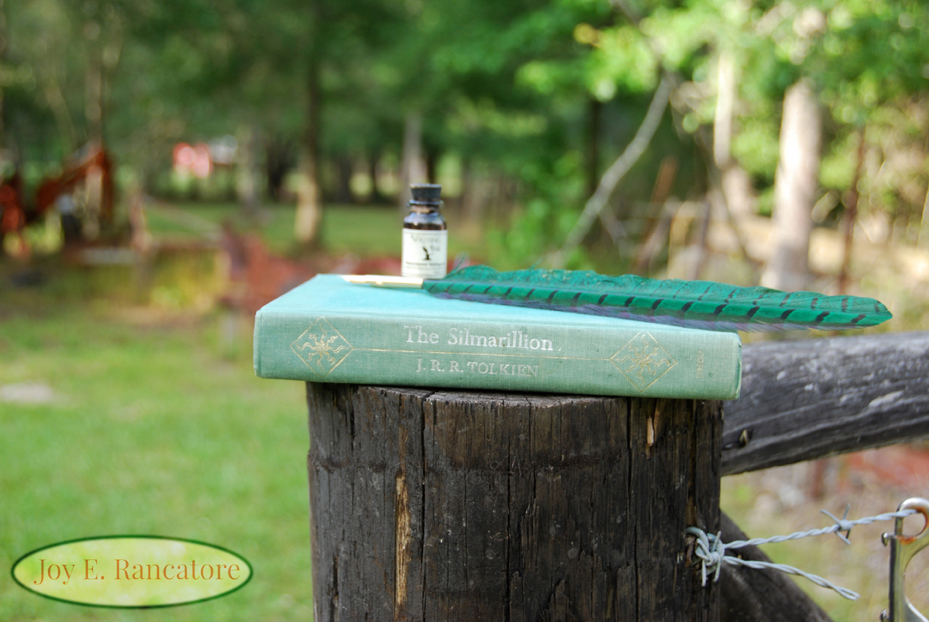Simply put, if you’re not one; you won’t understand! However, J.R.R. Tolkien gives a brilliant glimpse into the motivation behind a writer’s many oddities:
“‘What really happens,’ he wrote, ‘is that the story-maker proves a successful “sub-creator.” He makes a Secondary World which your mind can enter. Inside it, what he relates is “true”: it accords with the laws of that world. You therefore believe it, while you are, as it were, inside. The moment disbelief arises, the spell is broken; the magic, or rather art, has failed. You are then out in the Primary World again, looking at the little abortive Secondary World from outside.'” (p. 215)
“‘Every writer making a secondary world,’ Tolkien declared, ‘wishes in some measure to be a real maker, or hopes that he is drawing on reality: hopes that the peculiar quality of this secondary world (if not all the details) are derived from Reality, or are flowing into it.'” (p. 215)
Tolkien wrote upon completion of LOTR: “‘It is written in my life-blood, such as that is, thick or thin; and I can no other.'” (p. 231) Similarly, Ernest Hemingway is credited with saying, “There is nothing to writing. All you do is sit down at a typewriter and bleed.”
A Story must first claim a Teller
As a reader gives himself over to a well-written tale; the author must first lose himself to the same tale in order to find it.
A writer must dive into the world of the characters which reveal themselves…they won’t stick around to waste time on an uninterested imagination. Once a character beckons, the writer must follow—deep into the subconscious; he must explore all the character is willing to reveal and experience—as many of that character’s adventures, thoughts, feelings, relationships, epiphanies, elations and rejections as imaginably possible. For, in so doing, writer and character become one; and a true story—one full of the heart and depth of experience—emerges.
The greatest masterpieces aren’t necessarily created by the authors; they indwell the authors in such a powerful and mysterious way…feeding on the authors’ imaginations and creativities until the stories grow so large, they must be released and shared with the world.
If you read the recollections of many of the greats, you will find this to be true—characters reveal themselves along the way; rarely does a writer know where he or she is going when the pen first moves them. If they do, they surely don’t know all the stops, twists and turns along their journey.
Writers are a Story’s first readers
And then, you see the occasional record of how a writer is moved and affected by the words poured out of them: “Tolkien recalled that he ‘actually wept’ when writing the account of the heroes’ welcome that is given to the hobbits on the Field of Cormallen.” (p. 229) When that happens, the writer knows he or she has something special, rare.
There’s no more incredibly exhilarating and simultaneously draining experience as that of weeping with the ink as you write.
If I were to discover a time machine; perhaps I would go back to Tolkien’s days and discuss this with him and his literary companion, C.S. Lewis. What an amazing trip that would be!
My inquiring mind wants to know: What writer is your Inspiration and why? What would you like to discuss with him or her? Drop me a line or comment below!
[Excerpts from Tolkien: A Biography by Humphrey Carpenter, the authorized biography of the creator of The Hobbit, The Lord of the Rings and The Silmarillion]
As a sidenote: If you are a fan of Tolkien’s work, a writer who feels like a traveler on an alien planet at times or someone who knows and loves a writer (though you often wonder why); this biography would be most revealing, comforting and enlightening in turn.


